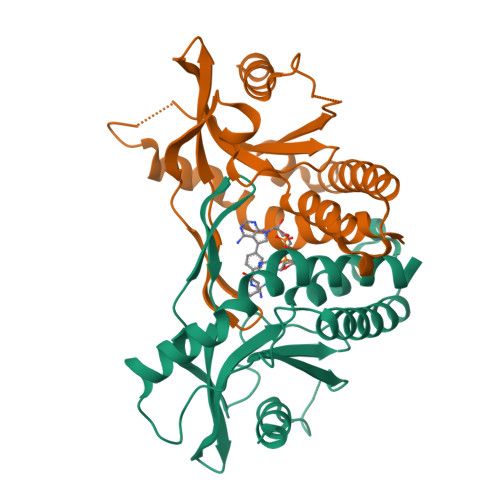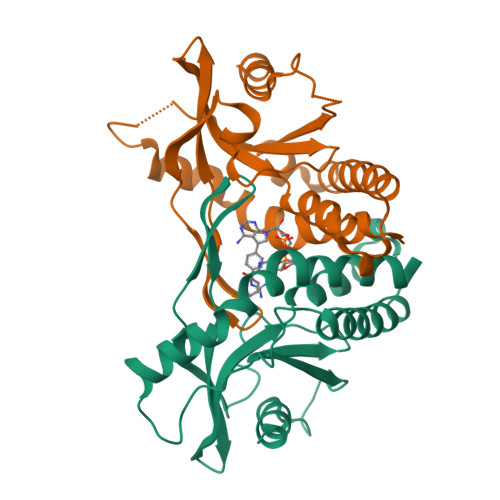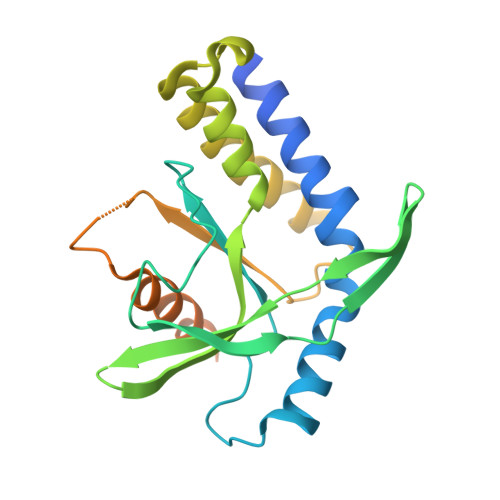Design, Synthesis, and Biochemical and Biological Evaluation of Novel 7-Deazapurine Cyclic Dinucleotide Analogues as STING Receptor Agonists.
Vavrina, Z., Perlikova, P., Milisavljevic, N., Chevrier, F., Smola, M., Smith, J., Dejmek, M., Havlicek, V., Budesinsky, M., Liboska, R., Vanekova, L., Brynda, J., Boura, E., Rezacova, P., Hocek, M., Birkus, G.(2022) J Med Chem 65: 14082-14103
- PubMed: 36201304
- DOI: https://doi.org/10.1021/acs.jmedchem.2c01305
- Primary Citation of Related Structures:
8A2H, 8A2I, 8A2J, 8A2K - PubMed Abstract:
Cyclic dinucleotides (CDNs) are second messengers that activate stimulator of interferon genes (STING). The cGAS-STING pathway plays a promising role in cancer immunotherapy. Here, we describe the synthesis of CDNs containing 7-substituted 7-deazapurine moiety. We used mouse cyclic GMP-AMP synthase and bacterial dinucleotide synthases for the enzymatic synthesis of CDNs. Alternatively, 7-(het)aryl 7-deazapurine CDNs were prepared by Suzuki-Miyaura cross-couplings. New CDNs were tested in biochemical and cell-based assays for their affinity to human STING. Eight CDNs showed better activity than 2'3'- c GAMP, the natural ligand of STING. The effect on cytokine and chemokine induction was also evaluated. The best activities were observed for CDNs bearing large aromatic substituents that point above the CDN molecule. We solved four X-ray structures of complexes of new CDNs with human STING. We observed π-π stacking interactions between the aromatic substituents and Tyr240 that are involved in the stabilization of CDN-STING complexes.
Organizational Affiliation:
Institute of Organic Chemistry and Biochemistry, Czech Academy of Sciences, Flemingovo Namesti 542, Prague 166 10, Czech Republic.



















